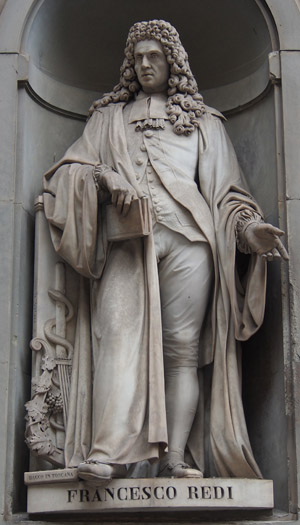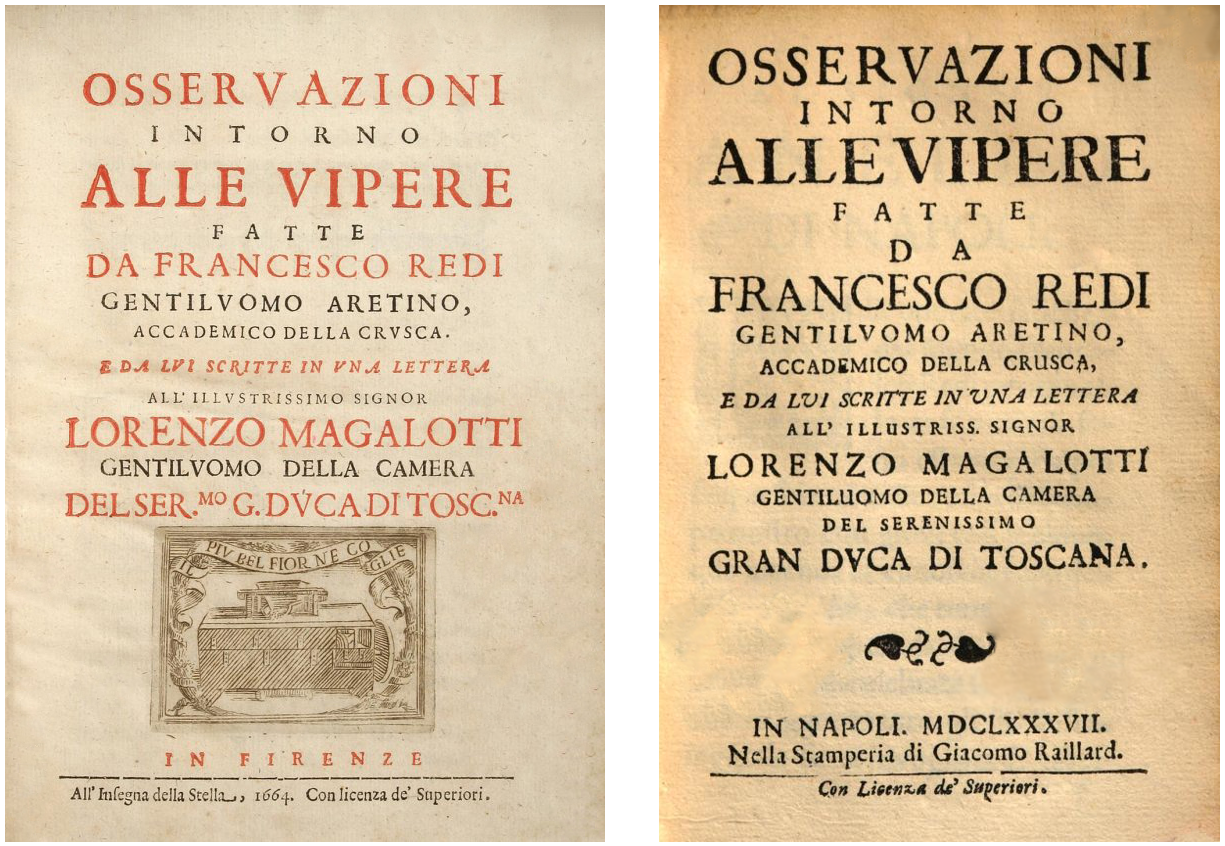
Francesco Redi (1626-1697) was born in Arezzo, Italy, studied at the University of Pisa, and became court physician to the Medici family in Tuscany. He is widely regarded as one of the most prominent scientists of his era and made significant contributions to science and the arts in various fields, including a treatise on venomous snakes titled “Osservazioni intorno alle vipere” (Observations on Vipers), published in 1664. Through this work and other contributions, he is considered one of the most important pioneers in the study of Toxinology.
In his observations on vipers, which were largely novel at the time and contradicted prevailing beliefs, Redi noted that the effects of a viper bite (in Italy) applied to all animals, with smaller animals being more readily killed. He also recognized that the dose of venom, as well as the route and site of injection, were crucial factors. Additionally, he observed that non-fatal bites could be expected to recover after an illness, venom ingested orally was not harmful, and, most importantly, that venom was the yellow liquid expelled from the fangs.
For more detailed information on the life and contributions of Francesco Redi, a good starting point is Prof. Gerhard Habermehl’s paper, “HISTORICAL REVIEW FRANCESCO REDI – LIFE AND WORK,” published in Toxicon in 1994, volume 32, issue 4, pages 411-417.

In 1967, the International Society on Toxinology (IST) established the Redi Award to honor scientists and clinicians who have made significant contributions to the field of toxinology. This prestigious award is presented at each IST World Congress, marking it as the highest honor bestowed by the Society.
The selection of candidates for the Redi Award is determined by a select committee, which includes previous award winners and is chaired by the Editor-in-Chief of Toxicon, the Society’s official journal. The recipient is announced during the World Congress, just before inviting them to deliver the Redi Lecture on a topic of their choice.
Past Redi Award Recipients:
2024 Jann Tytgat (Belgium)
2024 David John Williams (Australia)
2022 Bruno Lomonte (Costa Rica)
2019 Juan J. Calvete (Spain)
2017 Michel Lazdunski (France)
2017 Dietrich Mebs (Germany)
2015 Jose Maria Gutierrez (Costa Rica)
2012 David A Warrell (United Kingdom)
2009 Cesare Montecucco (Italy)
2006 Lourival Possani (Mexico)
2003 Baldomero Olivera (United States of America)
2000 Andre Menez (France)
2000 Alan Harvey (United Kingdom)
1997 Evert Karlsson (Sweden)
1994 Elazar Kochva (Israel)
1991 Ernst Habermann (Germany)
1988 Paul A Christensen (South Africa)
1985 Sherman A Minton (United States of America)
1982 Philip Rosenberg (United States of America)
1982 Nobuo Tamiya (Japan)
1979 Hugh Alistair Reid (United Kingdom)
1976 Chen-Yaun Lee (Taiwan)
1974 André de Vries (South Africa)
1970 Paul Boquet (France)
1967 Findlay E. Russell (United States of America)
